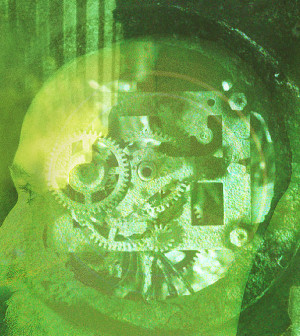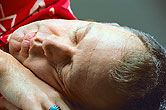- Could Your Grocery Store Meat Be Causing Recurring UTIs?
- Are You Making This Expensive Thermostat Error This Winter?
- Recognizing the Signs of Hypothyroidism
- 10 Strategies to Overcome Insomnia
- Could Artificial Sweeteners Be Aging the Brain Faster?
- Techniques for Soothing Your Nervous System
- Does the Water in Your House Smell Funny? Here’s Why
- Can a Daily Dose of Apple Cider Vinegar Actually Aid Weight Loss?
- 6 Health Beverages That Can Actually Spike Your Blood Sugar
- Treatment Options for Social Anxiety Disorder
Sleep Apnea May Steal Some of Your Memory: Study


Sleep apnea may make it hard for you to remember simple things, such as where you parked your car or left your house keys, a small study suggests.
Tests on 18 people with severe sleep apnea showed that this ability — called spatial memory — was impaired when sleep apnea disrupted rapid eye movement (REM) sleep, even when other stages of sleep weren’t affected. REM sleep is the deepest level of sleep, during which dreams typically occur.
“We’ve shown for the first time that sleep apnea, an increasingly common medical condition, might negatively impact formation of certain memories, even when the apnea is limited to REM sleep,” study leader Dr. Andrew Varga, a clinical instructor of medicine in the division of pulmonary, critical care and sleep medicine at the NYU Langone Medical Center in New York City, said in an NYU news release.
“Our findings suggest memory loss might be an additional symptom for clinicians to screen for in their patients with sleep apnea,” added Varga, who is also an attending physician in NYU’s Sleep Disorders Center.
While the study found an association between sleep apnea and impaired memory, it did not prove a direct cause-and-effect link between the two.
The study was published online Oct. 29 in the Journal of Neuroscience.
People with sleep apnea experience periods of disrupted breathing during the night. Sleep apnea can occur at any stage of sleep, but is often worst during REM sleep. Some people have sleep apnea only during REM sleep, the researchers noted.
Sleep apnea affects 4 percent of Americans overall, and as many as one in four middle-aged men.
More information
The American Academy of Family Physicians has more about sleep apnea.
Source: HealthDay
Copyright © 2026 HealthDay. All rights reserved.










